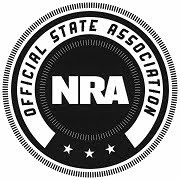HB1432- Carrying a switchblade knife; exception. Authorizes any person to carry a switchblade knife concealed when such knife is carried for the purpose of engaging in a lawful profession or lawful recreational activity the performance of which is aided by the use of a switchblade knife. The bill removes switchblade knives from the list of weapons the selling, bartering, giving, or furnishing of which is a Class 4 misdemeanor.
HB1582 - Concealed handgun permits; age requirement for persons on active military duty. Allows a person at least 18 years of age but less than 21 years of age to apply for a concealed handgun permit if he is on active military duty or has received an honorable discharge from the United Stated Armed Forces or the National Guard and has completed basic training as a part of his military service. The bill allows reciprocity under the same circumstances for a nonresident who carries a concealed handgun or weapons permit recognized in the Commonwealth. Current law requires that residents and nonresidents be at least 21 years of age to carry a concealed handgun.
HB1849 - Concealed handgun permit; permit requirements. Provides that a concealed handgun permit shall be of a size comparable to a Virginia driver's license and may be laminated or use a similar process to protect the permit. Current law requires that the permit be no larger than two inches wide by three and one-fourth inches long.
Legislation is going to be moving very quickly from this point forward. Check the legislative tracking form daily for updates.
One of the more disappointing things about this year has been the defeat of Constitutional Carry bills. Both the House and Senate versions of these bills were reported out of the respective committees (Senate Courts of Justice and House Militia, Police and Public Safety) but were then referred to Senate Finance and House Appropriations where they were killed due to a supposed fiscal impact:
Fiscal Implications: The proposed legislation would exempt any person who is authorized to open carry a handgun in the Commonwealth, from having to obtain a concealed handgun permit. The proposed bill also provides that an individual who qualifies to carry handgun under this subdivision is not required to demonstrate competency with a handgun under subsection B of § 18.2-308.02 or subsection B of §18.2-308.06.Fees charged for Concealed Handgun Permits (CHPs) were supposed to be revenue neutral, only covering the cost of issuing the permits. But it appears from the Fiscal Impact Statement (FIS) that localities and the state have begun looking at CHPs as a source of revenue over and above what it costs to process the applications. You will note that the FIS makes no mention of the reduction in costs to the State Police and localities if they no longer had to process some CHP applications, thus off setting the "loss" of revenue.
Currently, under existing law, the court, local law enforcement and the Department of State Police may each charge a fee for processing an application for a concealed handgun permit not to exceed $50. The court collects $10 for the processing of an application or issuing of a permit, the local law enforcement agency may charge a fee of not more than $35 to cover the cost of conducting an investigation, and the Department of State Police may charge a fee not to exceed $5 to cover the cost associated with processing the application. For nonresident applications, the Department of State Police accepts and processes each application. There is a $100 fee associated with each nonresident application to cover the cost of the background check and issuance of the permit. All fees collected by the Department of State Police in the concealed handgun program are deposited into the general fund.
According to data from the Department of State Police (Department), an average of 70,192 resident concealed handgun permits, and 4,131 nonresident concealed handgun permits were issued in the years 2012 through 2016. Based upon available data, it collected a total of $1,221,695 in FY 2016 for both types of permits, which was subsequently deposited into the general fund. The proposed legislation would have an impact on general fund revenue and revenue collected by localities. However, because the number of individuals who would be exempt under this proposal is unknown, the estimated revenue loss to the state cannot immediately be determined at this time.
There is not enough data to estimate the impact to localities. According to the Compensation Board (Board), currently, based on best available data, the estimated revenue loss to state could be as much as $847,000 and the estimated revenue loss to localities could be as much as $240,000.








1 comment:
It seems bizarre to institute "constitutional carry" by tying it to open carry rather than explicitly stating that permits aren't required. Also, the financial impact statement is misleading since the permit fee is supposed to cover the cost of issuing the permit; it's not supposed to be a revenue generator. The only real impact should be the jobs directly related to permits, which would have to be "downsized" or repurposed.
Post a Comment